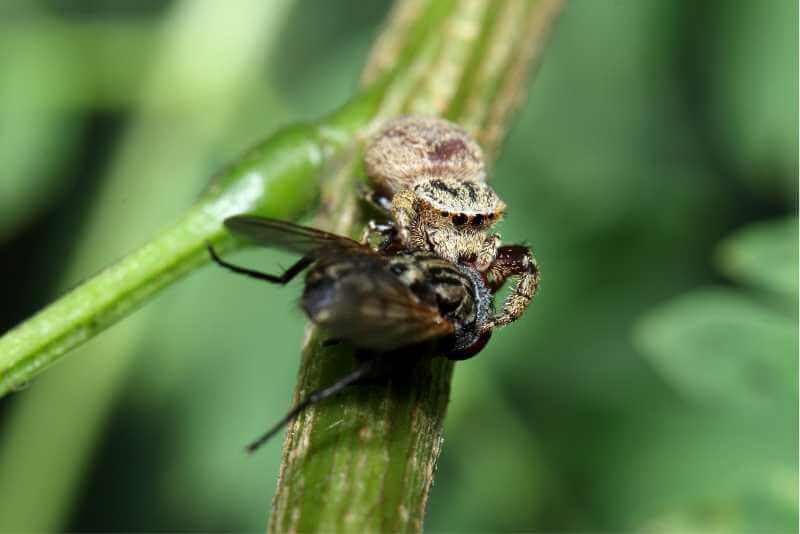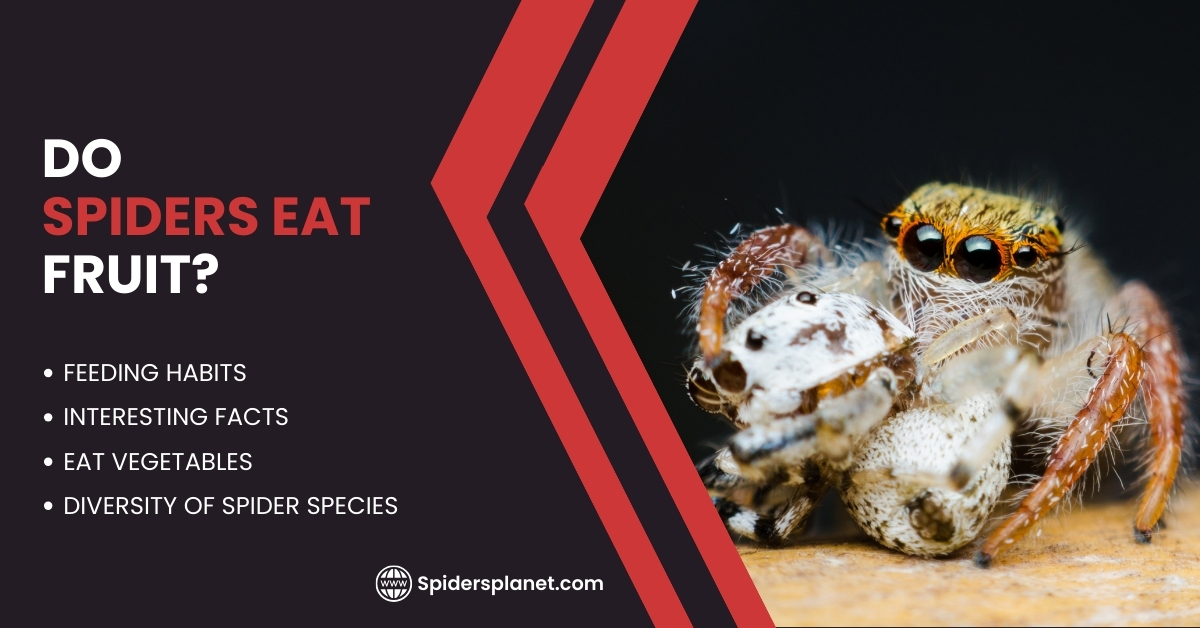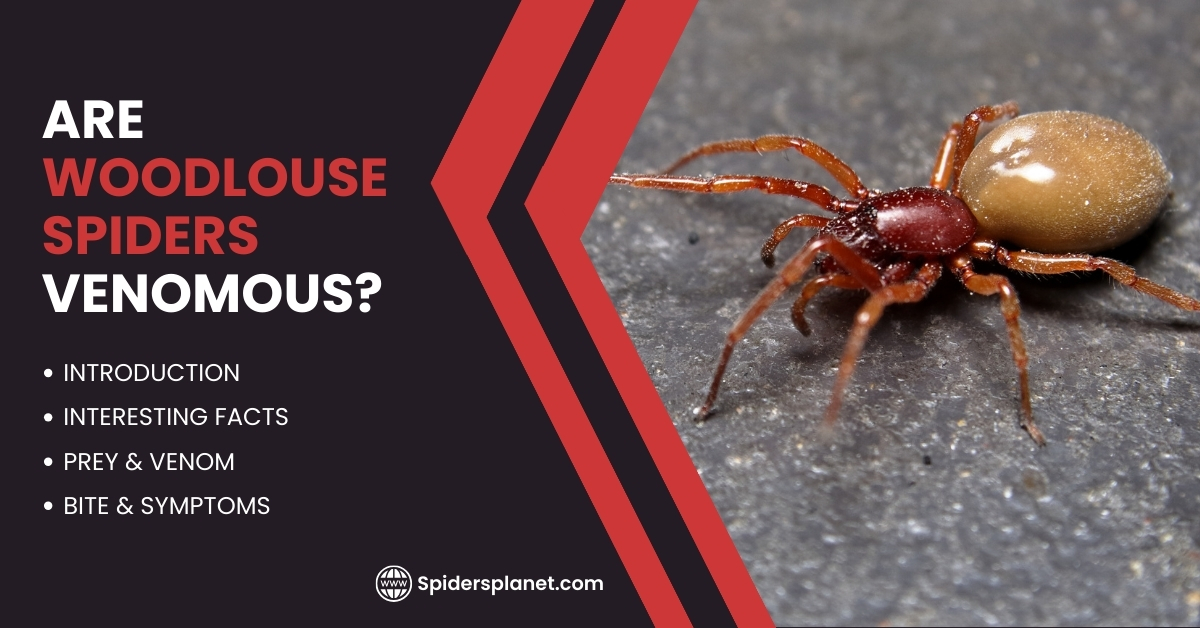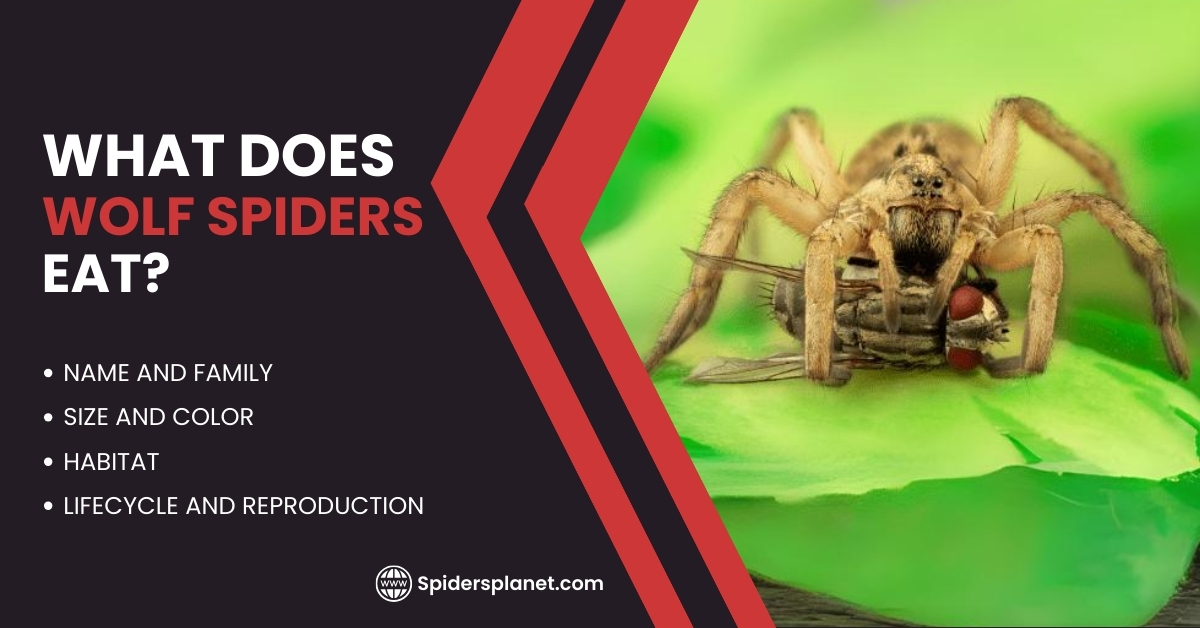Have you ever wondered if your pet spiders could eat human food? There’s something almost surreal about the idea of feeding a spider food from your own plate.
But, before you go mashing up some leftovers for them to eat, it’s important to know whether or not it’s safe to feed human food to your spider, and most importantly will it provide any nutrition.
The short answer is yes there are certain spiders that can consume various forms of human food, including egg yolk, raw meat, and even marmalade.
To most of us, these findings may seem surprising given spiders’ carnivorous nature, but this doesn’t imply that human food is suitable or even healthy for spiders.
It’s important to note that these instances are exceptions rather than the rule. In fact, most spiders wouldn’t naturally come across these foods in their environment, nor would they seek them out.
Their systems are designed to digest a protein-rich diet of live prey, not processed or cooked human foods. You should also remember that spiders can’t chew because they don’t have teeth.
Their meals need to be in liquid form for them to consume. Therefore, only soft and easily dissolvable human foods may be considered potentially safe for spiders.
Does Human Food Offer Any Nutrition To Spiders?
Human foods don’t really provide the specific nutrients that spiders need for their growth and survival. Although foods like egg yolks can be a good source of fat and proteins, in small doses, to spiders it wouldn’t be as beneficial compared to their live prey.
Not only that, but spiders are just not custom to this kind of food. Instead, they prefer to actively hunt down their prey, and consume it while it’s alive. So even if you place the egg yolk in front of your spider there is a good chance it won’t even try it.
Is There A Limit To How Much Human Food Spiders Can Eat?
So is there a limit to how much human food a spider can eat? Yes, in fact, feeding your spider too much human food can cause a wide range of problems including…
- Nutritional Imbalance: Spiders are adapted to gain all necessary nutrients from their natural diet of insects and small invertebrates. Human food, on the other hand, may not provide the right balance of nutrients needed for a spider’s health and survival.
- Toxicity: Certain components found in human food might be toxic to spiders. Spices, salts, sugars, and artificial additives that we often consume could potentially harm or even kill spiders.
- Digestive Issues: Human food is not meant to be digested by spiders and could potentially cause digestive issues, even if it was in a form they could consume.
So, while it might seem harmless or even kind to share your food with spiders, it’s important to remember that what is nutritious and safe for us can be harmful, and even fatal, for them.
Spiders can also eat human food However, As a rule of thumb, it’s best to let spiders stick to their natural diet of insects and other small creatures.
Can Spiders Live Soloy On Human Food?
Absolutely not! Spiders can’t live solely on human food. Their bodies are only designed to consume a diet primarily consisting of live or dead insects.
While some studies suggest that spiders can ingest certain types of human food like egg yolks or certain meats, as mentioned above, this is not sufficient or healthy for them in the long term.
Take Note: Human food doesn’t provide the right balance of nutrients, and even if they could physically consume it, the nutritional imbalance, potential toxicity, and risk of obesity from overeating make human food an inappropriate and unsustainable diet for spiders.
So, while spiders might occasionally nibble on some types of human food, they cannot and should not live solely on it.

Why It’s Important Spiders Have The Right Food?
Spiders must consume the right kind of food, so they can keep their energy levels, and reproductive capabilities, all in check. When spiders eat the right food this boosts their health and helps with the following.
- Proper Nutrition: Spiders derive essential nutrients from their natural diet, which primarily consists of insects and small invertebrates. These nutrients, including proteins and fats, are critical to their overall health and growth.
- Energy for Moulting: Spiders undergo a process called moulting where they shed their old exoskeleton and form a new one. This process requires substantial energy, which they derive from their food. An inadequate diet can lead to unsuccessful molts, affecting their growth and survival.
- Survival and Reproduction: The right nutrition directly impacts a spider’s ability to survive and reproduce. Healthy, well-fed spiders are more effective at spinning webs, hunting prey, escaping predators, and successfully reproducing.
- Maintaining Natural Behavior: Hunting and capturing their own food allows spiders to exercise their natural instincts and behaviors. This activity is essential for their mental well-being and honing their survival skills.
So providing spiders with the right food is crucial not just for their individual health and survival, but also for maintaining the broader ecological balance. It allows them to continue their invaluable work as natural pest controllers and contribute positively to biodiversity.
What About House Spiders And Food Crumbs?
This is a modern misconception the house spider eats crumbs off the floor! When in fact, house spiders don’t have a direct relationship with food crumbs because they don’t consume them.
However, food crumbs that are left unattended in your home do attract various insects such as ants, flies, and cockroaches which the spiders will prey on.
Conclusion
So, i hope your doubt is cleared about can spiders eat human food? There are certain human foods that spiders can eat. However, as mentioned already it’s simply not worth the risk to your spider’s health. Instead, you should stick to their main diet of insects. This will ensure they get the right balance of nutrients.



